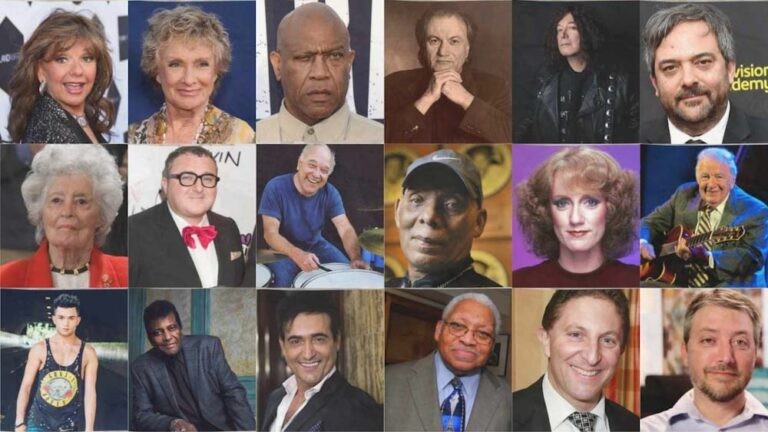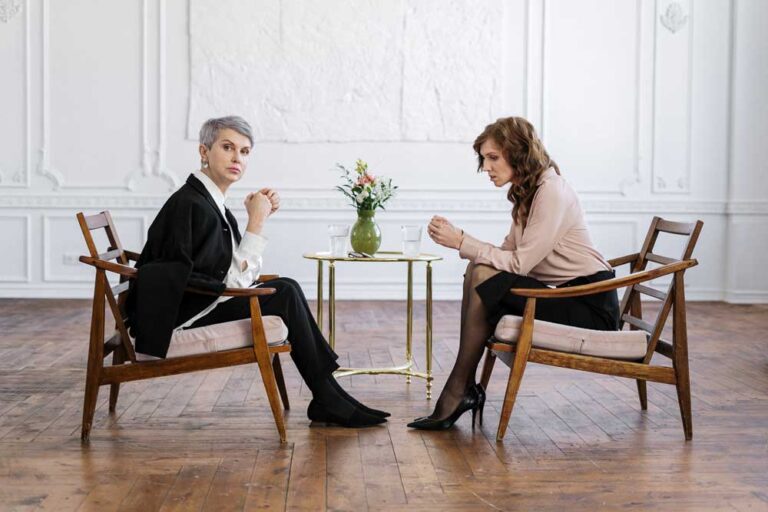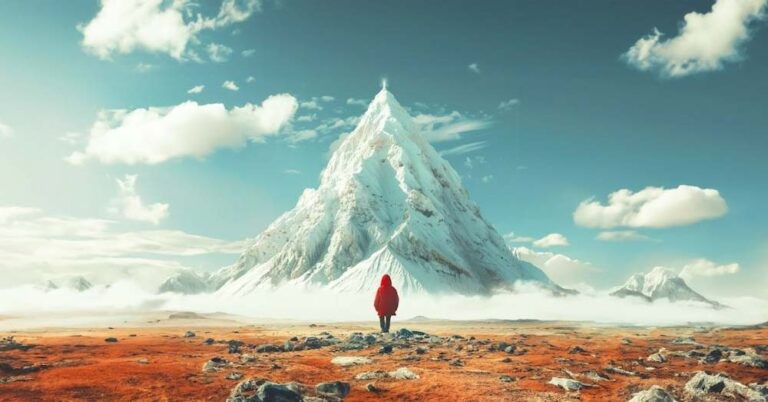“A map of the world that does not include Utopia is not worth even glancing at” – Oscar Wilde.
We all heard of this magical and perfect place called utopia. However, most of us don’t believe that this place is real, even less possible to get there in our lifetime. This is not surprising because of our history and many problems of today. Still, there is a waste of literature and many thinkers, like Aristotle, that gave their best trying to explain what a utopia should look like and how we should get there. We have accumulated a large pool of information on this topic, so now we will answer the question: utopia, is it possible in our lifetime?
Land Of Abundance and Plenty
To truly understand a utopia, we need to look at the characteristics of the time and place when people imagined that utopia. For example, if a person lives in a time of hunger, they would view utopia as characterized by food abundance. If they were living in a cold environment, then the desire for warmth would distinguish it. If a person is lonely, their utopia should have an abundance of friendly people and loved ones.
Thus, utopia is a place of the abundance of different characteristics that people hold most important, in which people gave the name of Cockaigne in the Middle Ages. Essentially, Cockaigne is a land of plenty. If you would show a person in the Middle Ages the world of today, they would probably say, “This is Cockaigne!”
So wait? Are we living in a Utopia of the Middle Ages? We do. However, we don’t think of it as a utopia as we have our ideas of what we still want to have, we are often too caught up in our modern-day problems and can’t imagine what life was back in the day. If we could, we would not give our modern-day problems so much weight, as they are nothing compared to what people had to go through back in the day.
Building Utopia Today
Still, it is fair to say that things could be better. We could have even more safety, abundance, and sure enough happiness. But, realistically, we don’t even need that much to agree that we live in utopia. We could eradicate poverty (the oldest utopia on the planet) in a year if we just reorganized our resources and gave everyone free money.
At first, this idea can sound Utopian, absurd, and even crazy, but scholars in the University of Manchester show in their book Just Give Money To Poor People (2010) countless examples were giving free money works without a doubt. They show again and again that people of different age, gender, racial background, income level, geographical locations, and even extreme psychological backgrounds (such as drug addicts and too violent people) all benefited from access to unconditional basic income. Their lives live of everyone around them, and the economy’s well-being improves to unexpected levels when people are given this “free money.” Indeed, it works so well; these scholars are forced to ask, “Why aren’t we giving everyone free money?”.
To answer this question, we need to look at how the world works today, whereas to get money, people go to work and work hard to earn their living. Now, no one minds to be given some extra cash, but there is an idea that money has to be earned in sweat and tears, and that if we give people free money, they will become lazy and unproductive. Even worst, they may start doing more drugs, drink more, and do other destructive behaviors.
We are not trusted enough to know what we want. If people have access to more free money, hence time, they will go crazy, lose control, rebel, and do some other wild behavior. In reality, it is the other way around. With little extra income, people can relax from the ongoing stress of needing to earn that money and start thinking and making better decisions for themselves, hence becoming better and more productive members of society.
There is an excellent saying that “Rich people don’t understand what poor people need.” Here we are talking about extreme poverty. People who are that poor are often blamed for having gotten into this situation and are not trusted to make the right decision to improve their basic state. Hence, they are put through different social work programs to help them or remove them from the streets and eyes of the wealthier people. People don’t understand that these people who can’t take care of their essential needs are often are exhausted. They are physically and psychologically taxed by living in continuous scarcity. They start to make basic mistakes that accumulate and become big mistakes, which even further decrease the quality of life and lead to even more mistakes and bad decisions. This creates a negative spiral in their lives and can lead to terrible decisions, like taking drugs and becoming alcoholics. Thus, by taking care of these immediate problems, people can stop, think, and start making the right decision. They want to do good, but it is just tough to do so in poverty. Hence, if these people don’t have to think about their immediate survival, they can start thinking about higher-level goals that they would want to achieve. This is what free money would do for people. It would remove our constant need to worry about our basic needs and elevate society to a higher standard of living overall. People would start doing projects of a higher level and push their lives, others’ lives, and the economy in an upward spiral.
As for financial feasibility, it is calculated that it would take only $175 billion to eradicate poverty worldwide. Now, this can sound like a lot of money at first, but this is only 1% of the USA’s GDP and roughly 1/4 of their military spending. Winning war on poverty would be a bargain compared to the war in Afghanistan and Iraq, estimated to have cost $4-6 trillion. Eliminating poverty would mostly pay for itself. For example, people will use that money to buy things that will return money into the economy. People will spend money on the immediate things they need like health, food, or closing, meaning that there will be considerable savings related to medical, mental, and related issues. There will be a less petty crime, which will save police work. People will spend more time studying. There will be less unplanned birth, and the list goes on and on.
My Personal Utopia
As you may know that at a time of writing this, I am traveling the world full time for more than 1.5 years. The purpose of my travels is not to relax, escape from my problems, see the world, to meet exotic people, or anything like that (although I like to do all the above anyway). No, I want to travel the world to see what other people are doing right that I may be doing wrong. Said, I don’t believe that living in one place all my life I get all the right information, or that Western Society, where I am from, gets all life-related questions correctly. For example, I know that some of the world’s poorest people are also the happiest people in the world and the other way around. I know that spiritual practice (not necessarily related to God) is currently more practiced in Eastern society, and it is good for our health and happiness. I know that we have some crazy rules regarding love, family, companionship, money, culture, and other aspects of our lives in the western world, which become apparent when we step across the border. This is the kind of knowledge I’m looking to accumulate and share with others. I want to kill ignorance by looking at other extremes of life. I know that even after living in one of the most advanced economies in the world, the United Kingdom, I am still a fool that hopes to get a bit wiser.
As such, in some places like Thailand, people are always smiling to a stranger (which is why Thailand is probably known as “land of smiles”), while in other places, like Japan, people won’t even look at you. I felt extremely happy and welcomed in Thailand and very isolated and alone in Japan. This told me that the experience we have with other people is key to feeling good. I also noticed that I feel good in places where there are almost no cars or traffic. I understood that when I thought of all my favorite places on the planet and what they all have in common.
Thus, I like1) Copenhagen, Denmark, where people drive mostly on bicycles 2) Koh Phi Phi, Thailand, an island where you walk or take a boat to get anywhere 3) Koh Tao, Thailand, where you have little traffic. Still, not 4) Pai, Thailand, which has wide roads, but no cards to speak of, and 5) overall Laos, which is mostly underdeveloped, green, and beautiful. All these places have virtually no traffic. People can walk anywhere relaxed, not worry about being run over, and pollution and communities are much closer, and relationships are more personal and strong. This is to say that cars affect our happiness, and the more cars we have around, the less happy we become.
Utopia And Happiness
“Pursuit of happiness is Utopian fantasy” – anonymous
The current western model of happiness is materialistic. It is “the more, better, faster” model of happiness, whereas we want to have more of whatever we want. If we can’t have more, we want to have it better. And if we can’t have it better, than you wish to have it faster. Preferably you want all these three conditions at the same time.
The problem with this happiness model is that we live in a world of finite resources and infinite desires. But even if you could have it all, it is said that happiness averages out at $75,000 income per year. This is to say that after you have $75,000, you won’t get significantly happier if you receive an increase in money. Furthermore, usually, people don’t know what they want or need. They are overspending looking for these things that make them happy, and if only they knew what they needed, the $75,000 point would drop dramatically.
It is fair to say that we need some money, but not as much as people think they need. Real happiness is, therefore, not materialistic and has to come from within. This is to say that as long as we have, our hearts are in the right place. We will be happy. This is possible, too. I mean, I write about it all the time. There is a formula to happiness that if we follow, we will be happy. Hence we will have a utopia.
Criticism of Utopia
It is fair to say that there are different types of Utopias. Some utopias have strict rules, and people have to follow them, or else. This is perhaps the case of some of the most criticized utopias attempts, such as utopia of Fascism, Communism, and Nazism. These utopias were, in fact, misinterpretations of some tremendous and idealistic works by some great thinkers such as Karl Marx. But if someone misinterprets or misapplies certain concepts, does it make the whole methodology wrong? I mean, more than a few religions have their fair share of criticism and blood on their hands, but we still keep them to this day. So why do we give up on trying to build a utopia and not on religion?
The second kind of utopia is based on our potential. This utopia is incomplete, and it can never be complete because the world is continuously changing, and so as the utopia. In this utopia, people are incentivized to work on their dreams, dream bigger, and follow their passions. This is the best utopia model, in my eyes, as everyone becomes part of a solution rather than a problem.
This last point is the basis of another criticism of utopian thinking, which is my own. We all say that we want improvement, but we are rarely acting on it. There is progress, but it seems to follow self-interest. I mean, we got this far as a society, but even people who pushed us here were often doing it because they were getting something out of it. The fact that they did good is just a bonus. Here I am thinking of people like Henry Ford, who contributed significantly to the world as we know it. For example, he implemented the 5 days work week, which was 6 or 7 day work week before him. However, he did this purely out of self-interest. He gave people 2 extra days off to relax to buy his cars, as otherwise, they did not have time for it. Or take Thomas Edison, whose work revolutionized the world. He, too, was after glory, fame, money, and self-interest. Indeed, he would spend more time parading people around his office, showing curious people what he was doing than doing actually works. He did die with more patented inventions than almost anyone else in the world to this day, but even his stuff said that he could have done more if he had found more focus. And for every Hanry Ford or Thomas Edison, there was an Adolf Hitler who pushed society backward, which makes me wonder how far we could have gone if we all worked on a common goal of improving the community towards a utopia.
__________
Source:
Most of the source of this article is based on the work of Rutger Bregman in his book Utopia For Realist: And How We Can Get There, but also of my book, which you can find on this website.
















3 thoughts on “Utopia Of Happiness, Abundance, And Plenty In Our Lifetime”
Oh this is cool.
Pingback: Radical Honesty: the Next Level of Happiness
Pingback: Blue Zones of Happiness – Book Review